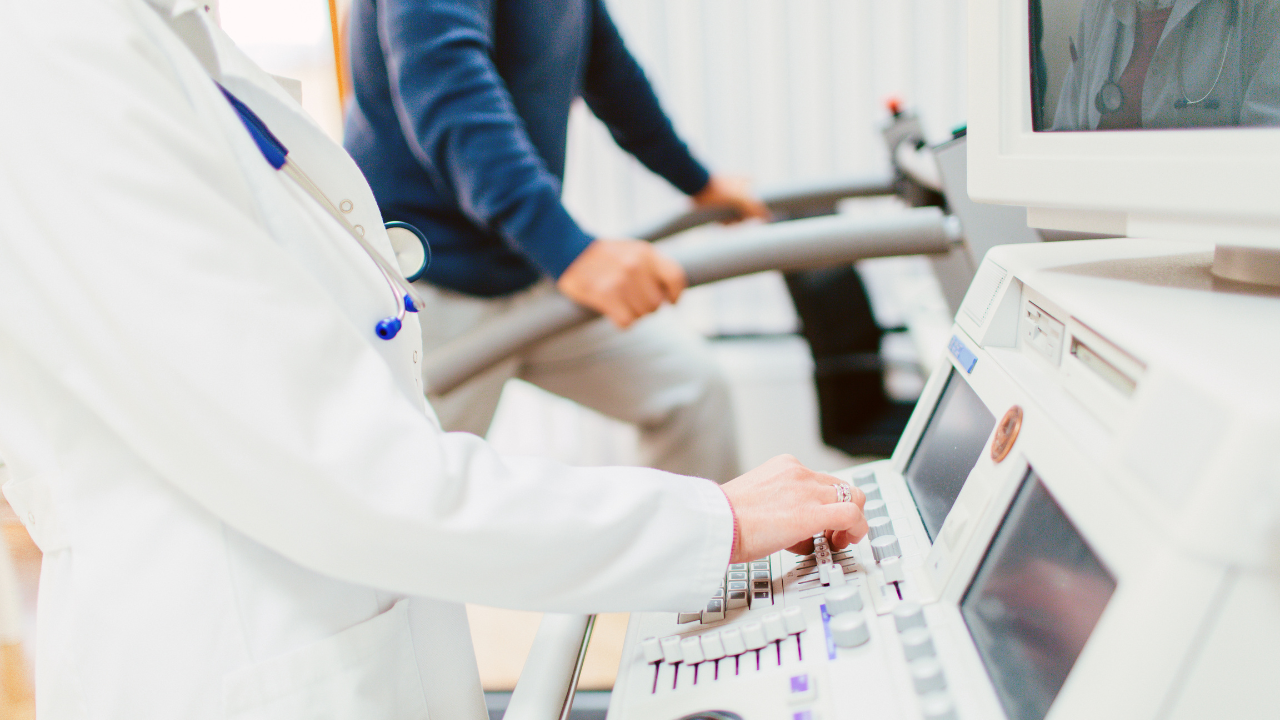Treadmill Stress Test Near Me
If you’re looking for a reliable way to assess your heart’s health and fitness levels, a treadmill stress test near me is an excellent choice. This diagnostic procedure helps detect heart conditions that may not be apparent at rest. It’s commonly recommended by doctors for individuals experiencing chest pain, shortness of breath, or those at risk for cardiovascular diseases.
Find a trusted treadmill stress test near me to ensure an accurate assessment of your heart health. Choosing the right diagnostic center is crucial for obtaining precise results and personalized recommendations from expert cardiologists.
What is a Treadmill Stress Test?
A treadmill stress test, also known as an exercise stress test, evaluates how well your heart functions under physical exertion. It measures heart rate, blood pressure, and electrical activity using an electrocardiogram (ECG) while you walk or run on a treadmill. This test is crucial for detecting blocked arteries, abnormal heart rhythms, and overall cardiac performance.
Why is a Treadmill Stress Test Performed?
A treadmill stress test is recommended for several reasons, including:
- Evaluating symptoms such as chest pain or shortness of breath
- Detecting coronary artery disease (CAD)
- Assessing heart function post-cardiac procedures
- Monitoring fitness levels and overall cardiovascular health
How to Prepare for a Treadmill Stress Test
Before the Test
Preparation is key to ensuring accurate results. Follow these steps before your treadmill stress test:
- Avoid heavy meals: Eat a light meal at least 2-3 hours before the test.
- Dress comfortably: Wear loose clothing and comfortable shoes suitable for exercise.
- Limit caffeine intake: Avoid caffeinated beverages for at least 24 hours before the test.
- Discuss medications with your doctor: Some medications may need to be adjusted before the test.
During the Test
- Electrodes are placed on your chest to monitor heart activity.
- The treadmill starts at a slow pace and gradually increases in speed and incline.
- You’ll be monitored for any symptoms like dizziness, chest pain, or irregular heartbeat.
- The test continues until you reach your target heart rate or experience discomfort.
After the Test
- You may feel slightly fatigued but should recover within a few minutes.
- Results are analyzed by a cardiologist, and further tests may be recommended if needed.
Benefits of a Treadmill Stress Test
Early Detection of Heart Problems
A treadmill stress test helps in early diagnosis of heart conditions before they become serious.
Monitors Fitness Levels
It helps assess overall cardiovascular fitness, making it beneficial for athletes and individuals looking to improve heart health.
Safe & Non-Invasive
Unlike other procedures, this test does not involve surgery or exposure to radiation.
Who Should Get a Treadmill Stress Test?
A treadmill stress test is ideal for individuals who:
- Have a family history of heart disease
- Experience chest pain or palpitations
- Are at risk for high blood pressure or diabetes
- Need to evaluate heart function before engaging in strenuous activities
Potential Risks and Side Effects
Although the test is generally safe, some individuals may experience:
- Dizziness or fainting
- Irregular heartbeats
- Temporary changes in blood pressure
Your doctor will monitor you throughout the test to ensure safety and manage any complications.
Understanding the Results
Normal Results
A normal test result indicates that your heart functions well under stress, with no abnormal heart rhythms or signs of blocked arteries.
Abnormal Results
Abnormal results may indicate:
- Poor blood flow to the heart
- Arrhythmias or irregular heartbeats
- Signs of coronary artery disease
If your results are concerning, additional tests such as an echocardiogram or angiogram may be recommended.
Conclusion
A treadmill stress test near me is a vital diagnostic tool for assessing heart health, especially for individuals experiencing symptoms or at risk for cardiovascular disease. This non-invasive test helps detect potential heart problems early, allowing for timely intervention. If you’re considering this test, consult a trusted diagnostic center for an accurate assessment of your heart’s condition.
Frequently Asked Questions (FAQs)
1. What is the purpose of a treadmill stress test?
A treadmill stress test evaluates how well your heart performs under physical exertion, helping to detect conditions like blocked arteries and irregular heart rhythms.
2. How long does a treadmill stress test take?
The entire procedure typically lasts between 30 to 45 minutes, including preparation, exercise, and recovery time.
3. Is a treadmill stress test painful?
No, the test is not painful. However, you may feel tired or short of breath during the exercise phase.
4. Can I eat before a treadmill stress test?
It is recommended to eat a light meal at least 2-3 hours before the test and avoid heavy or greasy foods.
5. What should I wear for the test?
Wear comfortable, loose-fitting clothing and suitable athletic shoes to ensure ease of movement during the test.
6. Can a treadmill stress test detect all heart problems?
While it is effective in detecting coronary artery disease and arrhythmias, some heart conditions may require additional tests for diagnosis.
7. Is the test safe for elderly individuals?
Yes, but the test will be closely monitored by medical professionals to ensure safety, especially for those with existing health conditions.
8. What happens if my test results are abnormal?
Your doctor may recommend further tests like an echocardiogram or angiography to determine the exact cause of the abnormal results.
9. Can I take my medications before the test?
Discuss your medications with your doctor beforehand, as some may need to be adjusted before the test.
10. How often should I get a treadmill stress test?
The frequency depends on your risk factors and health conditions. Your doctor will guide you based on your individual needs.
